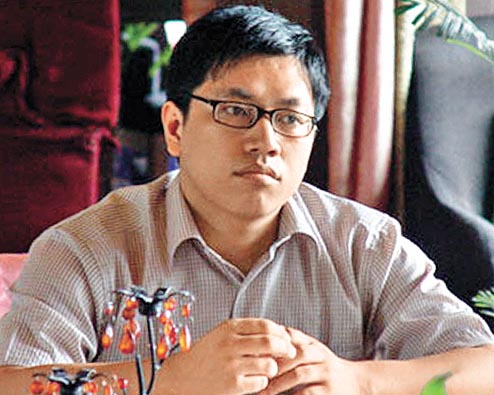Amid ongoing arrests of civil society activists and proposed legislation that would limit the activities of foreign NGOs in the country, Zeng Jinyan writes about a shifting dynamic between domestic NGOs and security forces in China. She profiles Guo Yushan, co-founder of the Transition Institute of Social and Economic Research, who is in detention on suspicion of “illegal business activity,” a charge frequently used against NGOs. Zeng describes Transition Institute as an “indigenous” group, which she defines as: “its thinking was shaped by the Chinese cultural ideals of the traditional scholar and the heroic knight; its research and activism were focused on local issues; and, furthermore, some of its responses to police interference can also be described as ‘indigenous.'” She explains that even such groups, which historically have played an important role as a channel to convey concerns from the lowest rungs of society to officialdom, are finding themselves on the wrong side of the security apparatus:
[..W]ith their pursuit of temporary and superficial stability through ever-increasing spending, Chinese authorities have strayed far from the means and ends of social governance: instead of seeking solutions to real social problems, this product-oriented bureaucracy is geared only towards the perceived “quick fix” of suppression.
Guided by this new methodology, the state security apparatus has no real interest in distinguishing the content and nature of different activists’ work, their individual characteristics, the threat they pose to the regime or their level of cooperation with the state, nor are the police keen to weigh the impact of their arrest on the government’s performance and public image. This new methodology has turned rights activists into standardized objects of business.
The true interests of the authorities lie in how to improve their business and increase output. Consequently, norms which originally played an important role in constraining the conduct of the police, such as humanity, morality, ideological values, the government’s image and public opinion have been severely weakened in the current police system.
The government’s adjustment of its overall attitude and policies towards NGOs represents another change. Decades-old independent film festivals have been cancelled, workers’ rights groups have been repressed, sometimes violently, the Liren Library has been disbanded, and the Transition Institute has been forcibly closed. The authorities also ordered the arrest of women’s rights activists and placed restrictions on—and attempted to close—the Beijing Yirenping Center. Groups with positive and moderate agendas that originally had a certain survival space have lost almost all possibility of existence. The closure of TI illustrates that in dealing with police control, pragmatic NGOs no longer have space to negotiate. This is a sign that the Chinese government is not simply strengthening its anti-foreign philosophy, but moreover, ultimately trying to control pragmatic NGOs by upgrading them to the category of political opposition groups. In other words, Chinese rulers cannot tolerate indigenous civil groups that—in the style of traditional Chinese literati—offer advice on how to govern society. [Source]
Likewise, the space to negotiate is also closing fast for China’s rights lawyers, many of whom defend disenfranchised members of society fighting for their legal rights, similar to the work of “pragmatic” NGOs discussed by Zeng. As Zeng writes, the families of several of lawyers who have been detained have tried the same approach as Guo of trying “to understand and engage with the Chinese authorities’ way of thinking” in order to ensure the safety of the detained. But as the cases of lawyers Gao Zhisheng, Pu Zhiqiang, and others show, this tactic has failed to protect them. The Economist writes about 14 civil rights advocates who were pictured on the cover of Asia Week Magazine 10 years ago and hailed as the vanguard of the new rights protection, or weiquan, movement. All 14 have since been imprisoned, detained, beaten, threatened, or have fled the country:
It has been a long and hard fall that says much about the Communist Party’s chosen path of evolution. Activists seeking to protect the legal rights of ordinary citizens rose to prominence in the early 2000s. At the time the party was trying to professionalise its legal system, to encourage people to seek redress through the courts and to reassure them that their land, their homes or the wealth they were fast accumulating would be safe from local officials who often had scant regard for the sanctity of private property. At first the party tolerated the activists’ emergence. It soon lost patience.
Since Xi Jinping took over as China’s leader in 2012, he has tightened the noose on them further. The remaining outspoken weiquan activists have been jailed or silenced. On May 15th prosecutors in Beijing formally charged Pu Zhiqiang, a 50-year-old lawyer who had been in custody for more than a year, with “inciting ethnic hatred or discrimination” and “picking quarrels and provoking troubles”. Mr Pu is a giant of the weiquan movement; his trial, which is likely to take place in a few weeks, will cast an even deeper chill over like-minded lawyers. [Source]
Global Voices gathers responses on Weibo to the charges against Pu Zhiqiang. Read more about Guo Yushan, civil society, and rights lawyers in China, via CDT.








